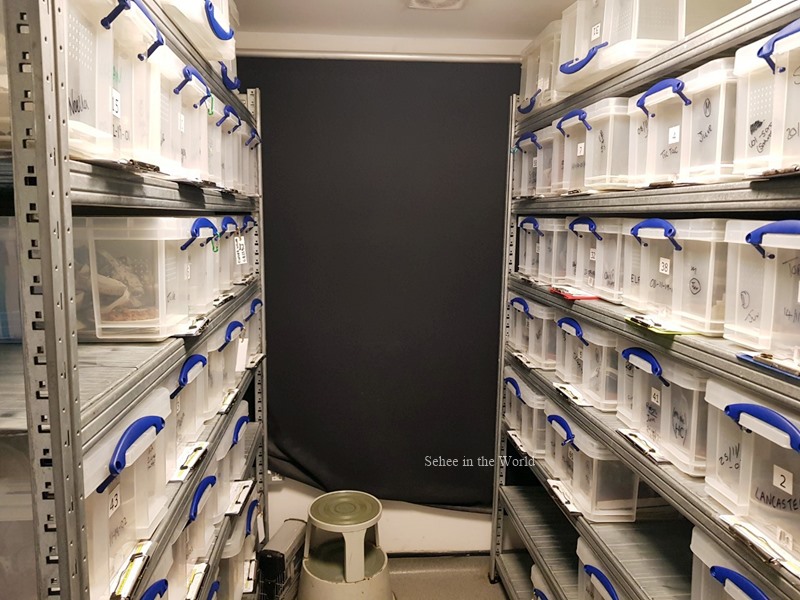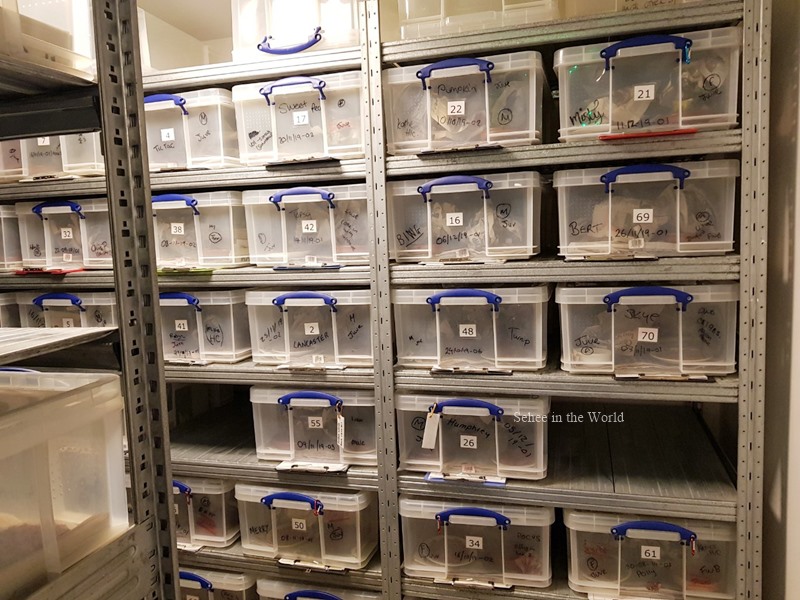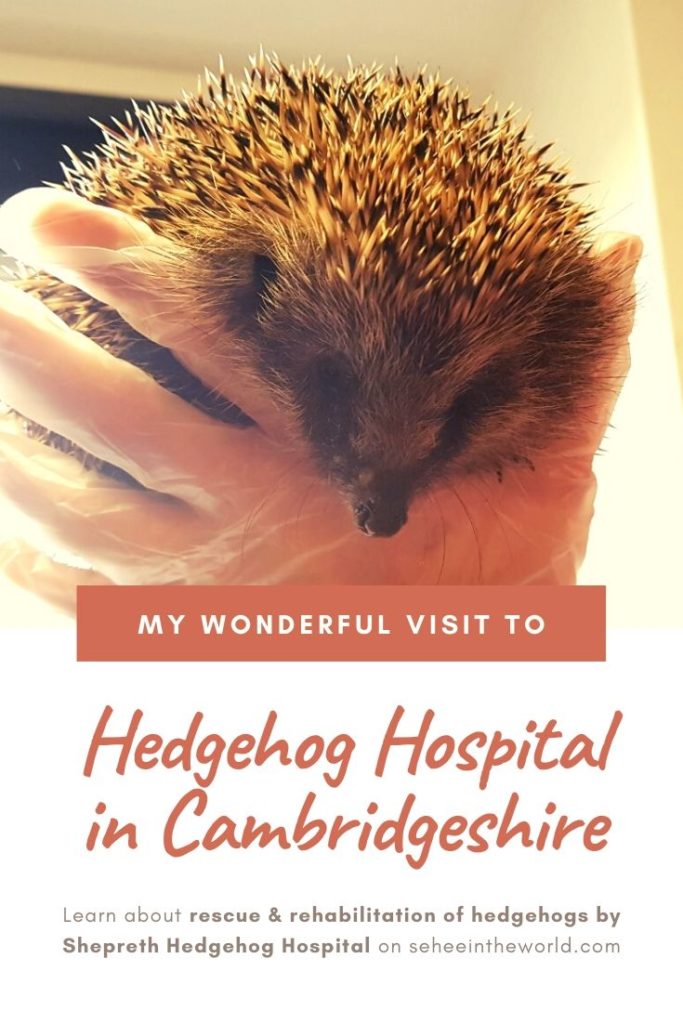Table of Contents
Last December I got a very special birthday gift: a visit to a hospital for wild hedgehogs near Cambridge! This hedgehog hospital was located in Shepreth. It’s literally where wounded wild hedgehogs come and stay for medical treatments. For this particular charity, most hedgehog patients are from Cambridgeshire, brought by residents finding them in their gardens or on roads.
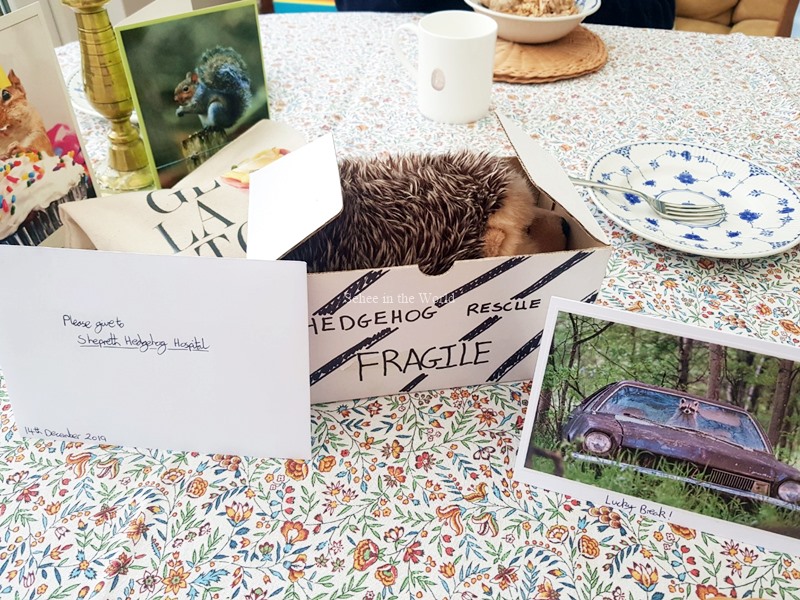
Like me, many people might not have come across the idea of a hospital just for wild hedgehogs. Thanks to my boyfriend Josh and his friend Stephanie, I had this wonderful chance to have a visit and hear all about their work! Stephanie, who used to volunteer here as a photographer, helped Josh contact the staff and arrange our visit. It was the perfect gift since I was eager to learn and do something for animals that need our protection.
After breakfast, we travelled to Shepreth via Cambridge. Lots of trains got delayed and cancelled en route due to an accident, which made our journey difficult. With diversion and waiting though, we managed to arrive at Shepreth Hedgehog Hospital, right next to Shepreth Wildlife Park.
Shepreth Hedgehog Hospital
At the time of our visit, 59 wild hedgehog patients were receiving medical treatment and resting.
This hospital seemed to take up to 60 hogs, as the triage staff said the patient’s rooms had almost no vacancy. Each hedgehog was having a rest in a fairly big, transparent plastic container box with a carefully made cosy newspaper house.
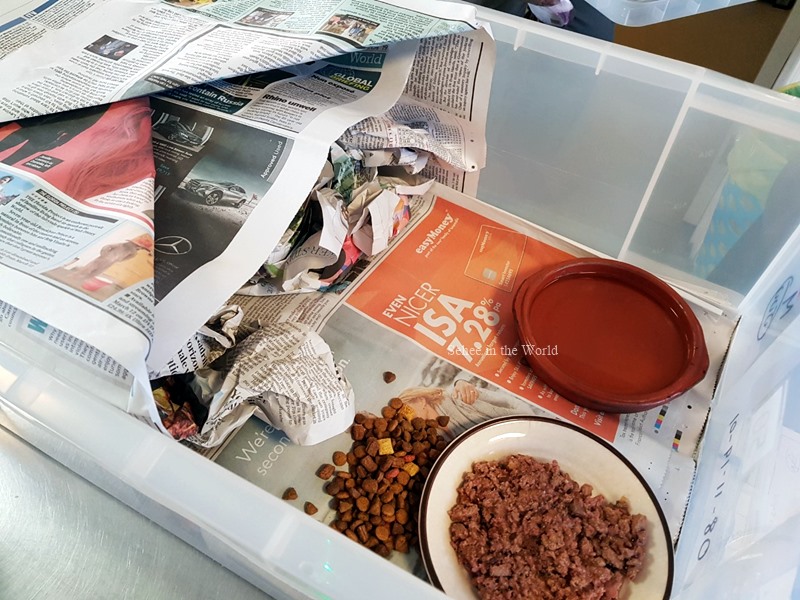
Hearing that we were going to the hedgehog hospital, I once imagined how cute the hedgehogs would be: sniffing, moving around and huddling together. It was probably general anticipation as a ‘special experience’ and from a lack of knowledge on wildlife hospitals. This ‘innocent’ excitement disappeared soon, as we entered the hospital building and saw the hog patient’s rooms. As a novice learner for wildlife, I paid full attention to the staff member’s explanations and tried not to disturb the volunteers while taking photographs.
Patient’s Rooms at Hedgehog Hospital
The patient’s rooms/boxes for ill hogs filled a whole room. Each box had a house number with the patient’s information such as the rescue date and the name given by staff.

Full of hog patient’s boxes on both sides of walls 
Every hog patient’s box has individual hog’s information written
Entering this room, I had an interesting feeling. Some of those hedgehogs were getting better after the treatment, while others needed more time for recovery. Since hedgehogs are nocturnal, we didn’t see and hear much movement; but occasionally we heard pounding and coughing. The pounding noise was when their spines hit the box, moving around in the house. And the coughing sound came from the ill ones.
It was irresistibly adorable picturing these 50+ hedgehogs resting in their homes, whether or not we could actually see them; but at the same time, it was sad because they were here being ill and wounded… Their coughs sounded so similar to ours, which was amazing and cute; but again, heart-breaking since they wouldn’t have coughed if they’d been healthy. Also, it was very sweet that staff members gave every hedgehog a name… All these different, mixed emotions came to mind simultaneously.
From Check-up to Medical Treatment for Wild Hedgehogs
Although I didn’t take a photo, I got to see the main germ through a microscope which hedgehogs normally get. Wild hedgehogs often get ringworm and lungworm, which they are brought here for. It’s natural they get this in their environment and can recover with time; however, if it develops further, they come here for medical treatment and care.
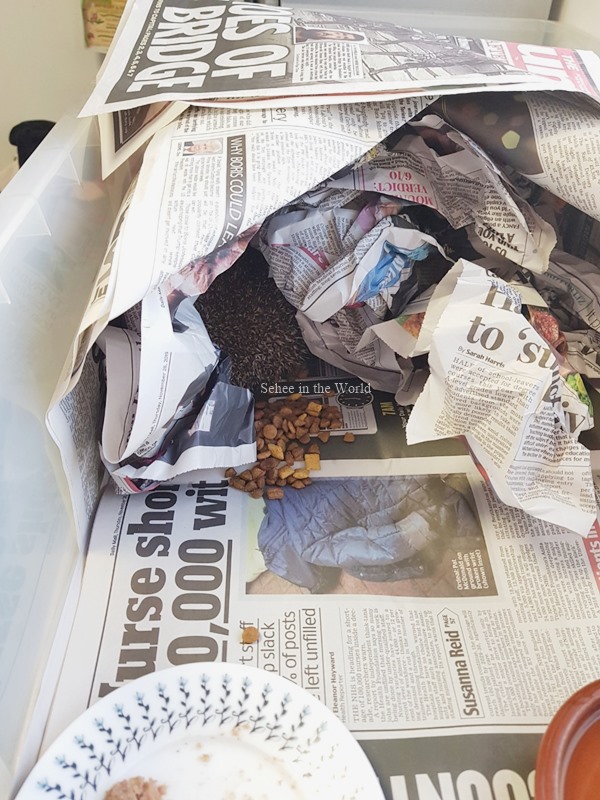
The hedgehogs had medical notes, which showed when and how much food treatment was provided; how much they ate; how heavy/light they were; and when the next treatment/injection would be with regular updates. They could get the lungworm again and resume coughing, even if they were recovering. As soon as anyone notices it, they make a note on this so the staff knows next time they’re around.
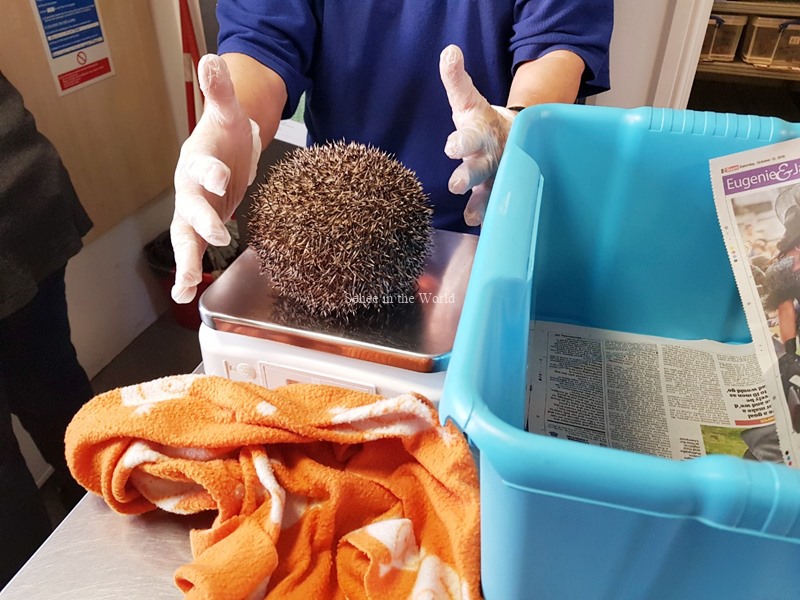
I learned A LOT about hedgehogs during the 1.5~2-hour visit to Shepreth Hedgehog Hospital. I used to think that all this knowledge wouldn’t matter to me so much. But even after over a month of the visit, I still remember it clearly and indeed had a splendid time. I’m sure everyone will find this interesting too if they have an opportunity!
I learned the below and would love you to read it through. 🙂 Warning: it’s super cute!! ❣️
Knowledge on Hedgehogs from Triage Staff
- Hedgehogs hiss when NOT impressed (e.g. disturbed when wanting to sleep)
- Hedgehogs grunt when they are content and happy
- Ill hedgehogs have a crusty nose and may cough
- Healthy hedgehogs can curl up like a ball of spines – this is their natural defense against predators!
- There is no set range of adequate weights for hedgehogs. Some hogs over 600g can be perfectly healthy, while another with the same range can be a bit chubby
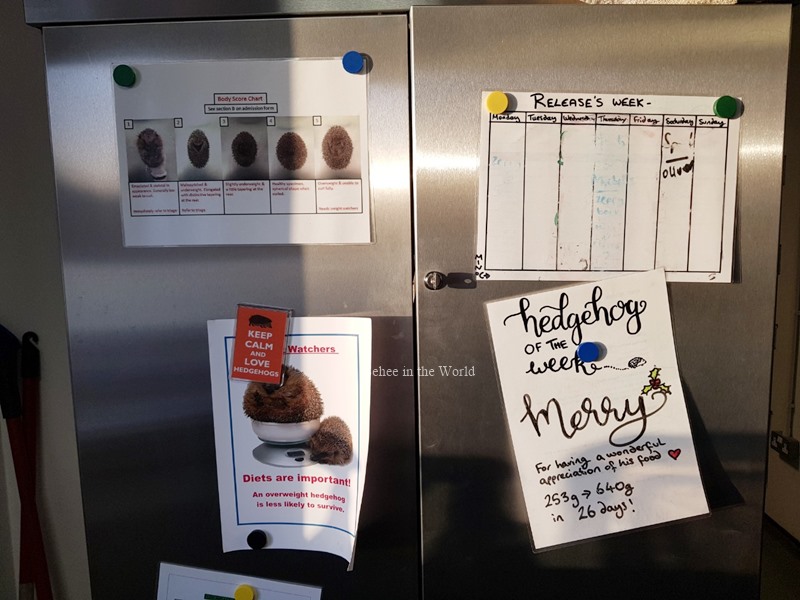
- Dog & cat food can also be suitable for hedgehogs
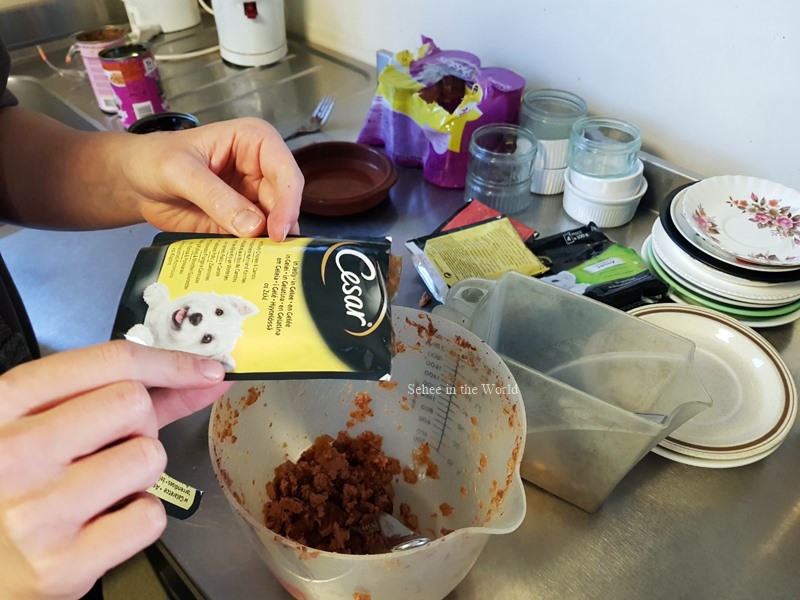
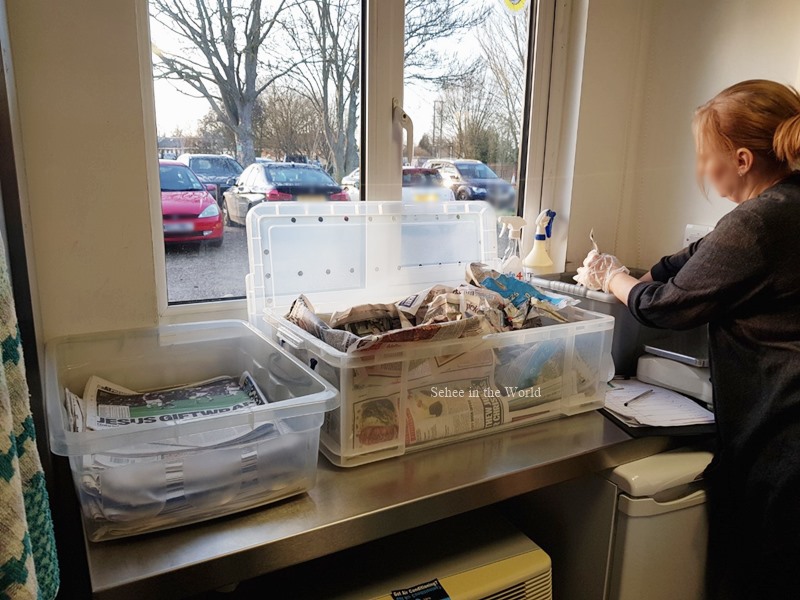
- 1 newspaper house per day for a hedgehog needs 5 copies of the Metro newspaper!
- Normally hedgehogs get medical treatments in their food; however, if they don’t eat it they need an injection
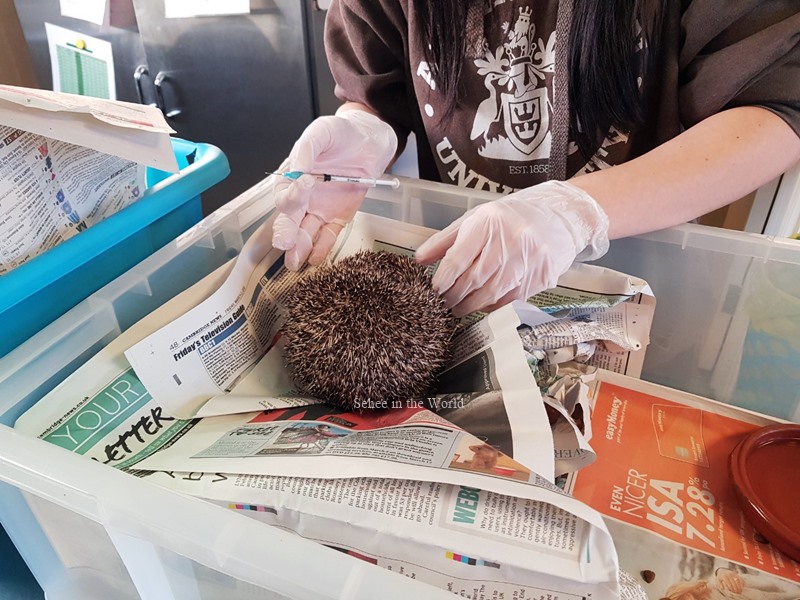
- If the triage staff needs to give a hog a shot, they put tension on the spines in order to tent the skin as much as possible to make it less painful/easier to inject
- Hedgehogs that fully recover go back to wild; volunteers keep those which stayed at the hospital for a long time in their garden. This is to gradually change the environment for a successful rehabilitation
- Mum hedgehogs may be visible during the day as they might need to make a better nest for their hoglets or make time to feed themselves
- Overweight hedgehogs, for not being able to curl up, need to go on a diet
- One of the biggest threats to hedgehogs is CARS. Their typical defence system, making themselves spiky balls to keep enemies from coming close, doesn’t work on fast-moving cars
- Check if any hedgehog is living under the woodpile before lighting a bonfire. They’re the perfect winter homes for hedgehogs
- If fences/walls are blocking between your house and neighbours’, a small hole in them will be wonderful for little passers-by
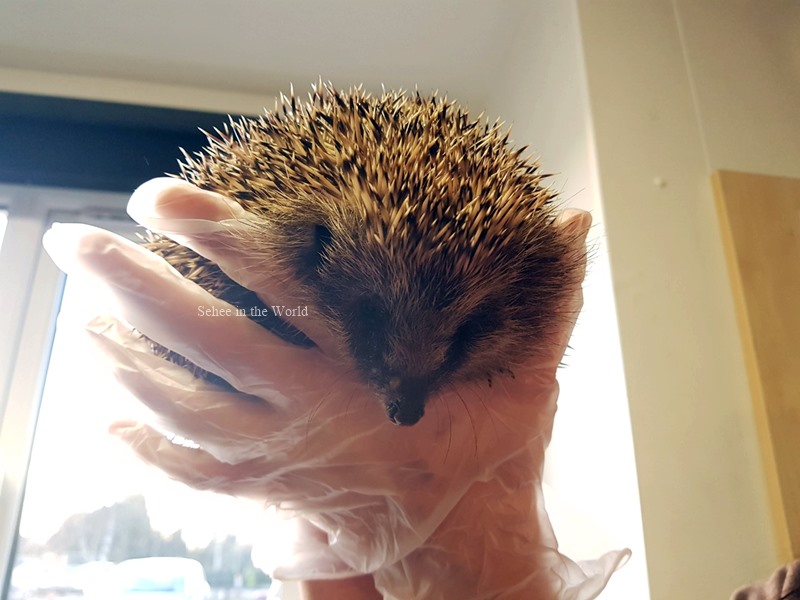
Something We All Can Do for Hedgehogs
It was the first time ever seeing hedgehogs in person and up close. These precious little creatures, despite them considering themselves big and strong, were so heartwarming. It was also very impressive to have a medical organisation for wild hedgehogs, as well as locals rescuing them.
We were very grateful for the triage staff and volunteers letting us visit them and talking us through their work. With all the learning from the 1.5 hours of visit, I wanted to do something. Perhaps this post is the first step I can do – sharing what we saw and heard!
Hope you loved our story of visiting Shepreth Hedgehog Hospital! If you’d like to do something for little cute hedgehogs and those working hard to look after them, you can help them in two ways:
- Donate/fundraise: you can donate Shepreth Wildlife Conservation Charity (SWCC) as much as you wish. Click the link here! You can also host your own fundraising link for SWCC using this web page. Most of the donation money goes towards the hedgehog hospital. But if you want to make extra sure it’s all used for hedgehogs, mention ‘hedgehogs’, or ‘hospital’ as you donate.
- Purchase items on the Amazon Wishlist for SWCC Shepreth Hedgehog Hospital: you can also contribute by getting essential items for them. Simply click the link to the Amazon Wishlist SWCC has created. When you add the items to checkout, the recipient’s address will automatically come up as ‘SWCC Shepreth Hedgehog Hospital’s Gift Registry Address’. This way, you can decide how you want to support them by directly providing them with the necessary items!

